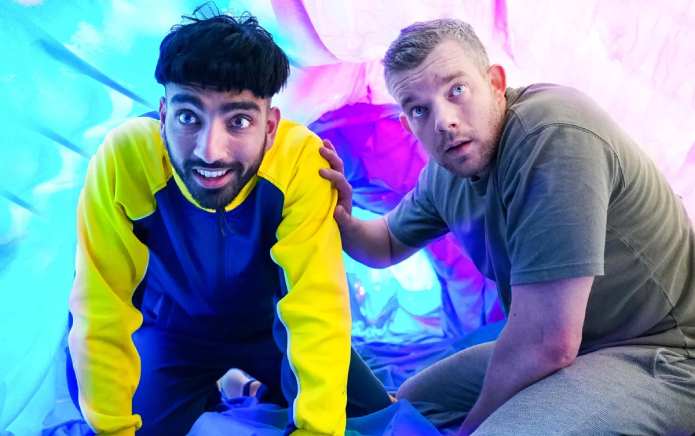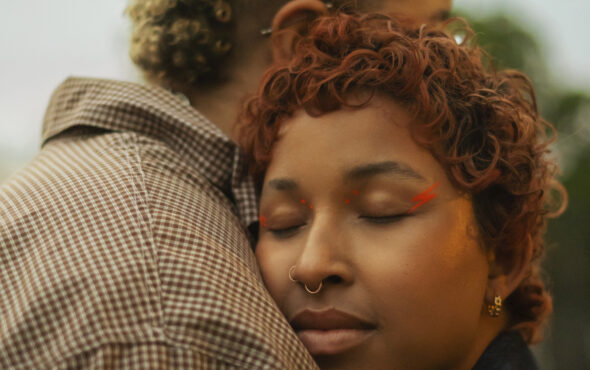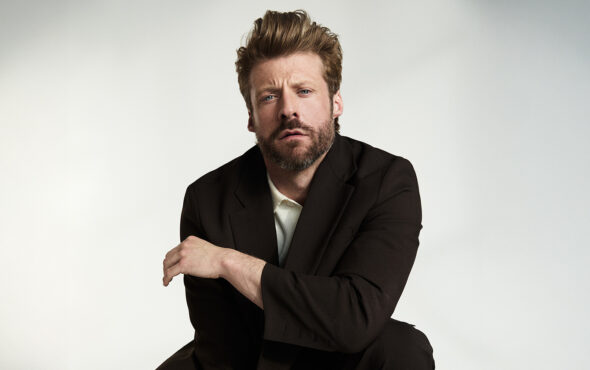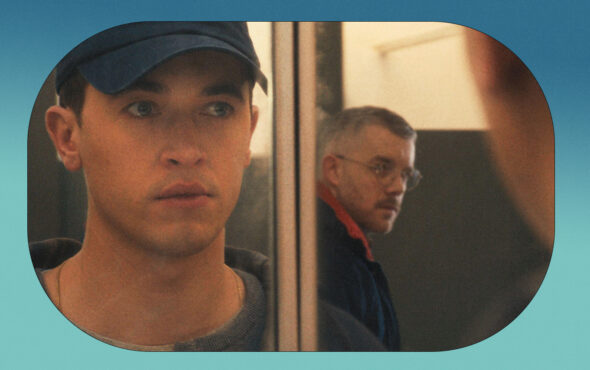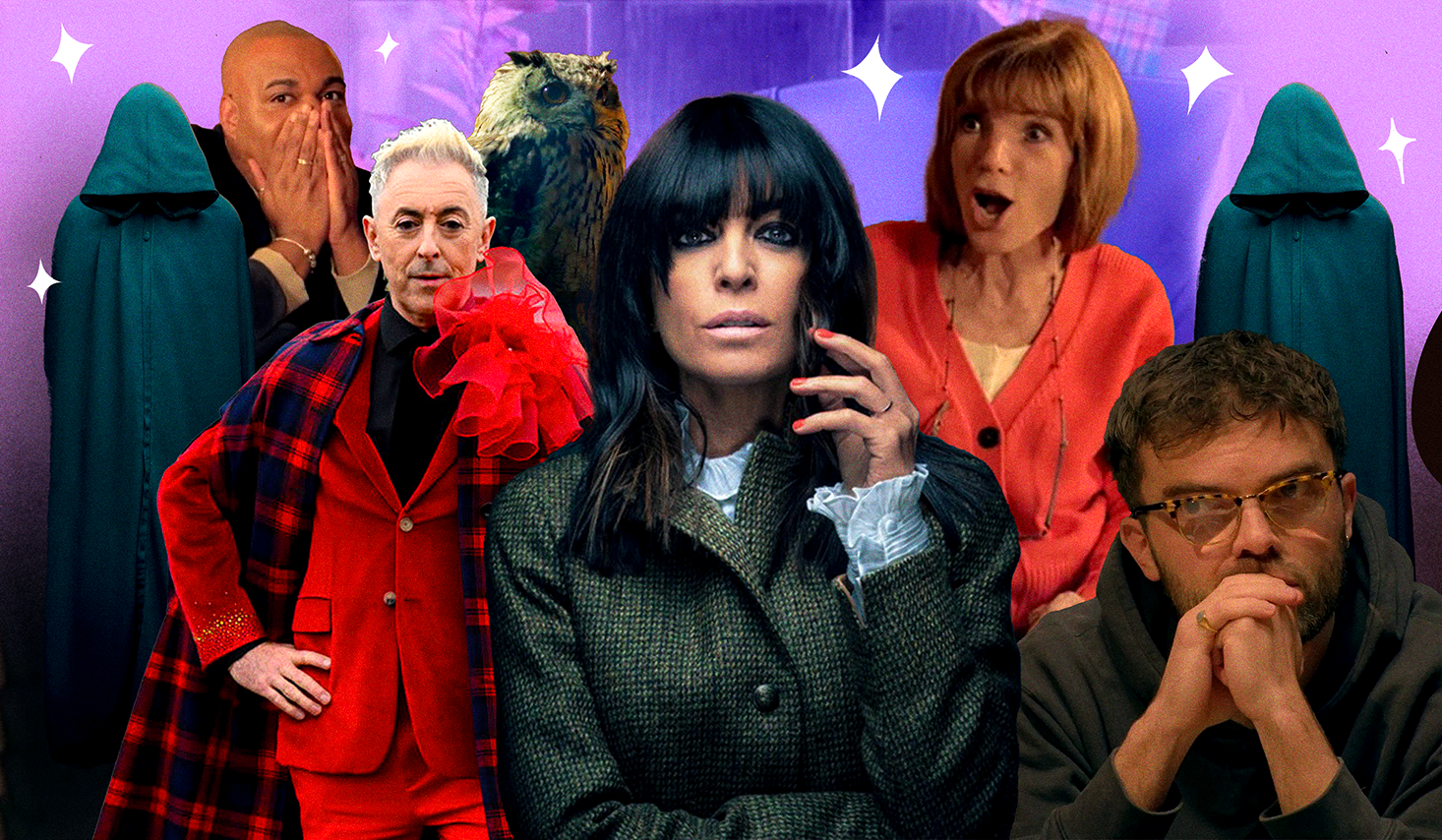
There’s no stopping The Traitors. For the uninitiated few, the concept is simple: it’s essentially the most dramatic version of wink murder imaginable. The game unravels thus: a group of 22 people are brought to a Scottish castle – Andross Castle in Ross-shire, to be specific – and either designated faithful or traitors. The traitors’ objective is to gradually “murder” the faithful, while the faithful have to band together to eliminate the traitors through banishments at the Round Table. The traitors’ identities are secret, and new ones can be secretly recruited which means the level of gamesmanship – and drama – is at an all-time high.
Key to the show’s mass appeal (which only seems to be growing) is that The Traitors has completely enraptured the hearts of LGBTQIA+ audiences. We’ve fallen head over heels in love with this intoxicating camp buffet, and we cannot get enough.
In the UK version, hosted by Claudia Winkleman, the contestants are everyday people, but the US adaptation, hosted by Alan Cumming, features an all-celebrity cast. However, “the core production of both series remains the same – it’s a game and the contestants are free to play it however they want. As producers, we don’t interfere with their decisions at all,” remarks Toni Ireland, executive producer on both the US and UK series, which both take place in Scotland. “The format creates the drama rather than us manufacturing anything that could feel mean.”
It doesn’t feel like The Traitors has any strict format, which sets it up for infinite variations: “The best thing about the format is that it delivers a different game each time, even now that we’re into the second series and the players have seen the show before, they can’t execute a pre-planned strategy,” Ireland explains. “They have to be reactive each day.”
It’s this sense of unpredictability that keeps the show fresh and enticing. You could come into The Traitors with a concrete plan, but the moment someone else acts in a way you don’t anticipate, that plan instantly crumbles. If you’re a traitor, other traitors can turn against you and stamp out your game plan. There are also in-game politics within the cast, and all the scheming and alliances mean that even the best-laid-out plans struggle to come to fruition. The dynamics force people to think on their feet, creating an everlasting guessing game. There’s truly no way to predict what happens next, and it makes for some absolutely electrifying television.
View this post on Instagram
A large part of the excitement the show creates is in its camp nature – which is abundantly clear from the very beginning. In the opening of the UK version’s second season, glamorous host Claudia Winkleman, sporting her spectacular fringe, vamps about in a dimly lit castle, wearing a sleek blazer. The show immediately sets a surreal, campy tone with a scripted interlude separate from the main action. She begins conversing with a literal owl (equally glamorous, we must admit) as she writes an invite to the show’s contestants. “It’s time to start the game,” Winkelman declares, emphasising the first half of “game” so intensely that it sounds like she’s saying “It’s time to start the gay-muh.” And indeed, it is pretty gay.
As it turns out, it’s camp by design.“We absolutely would describe the show as camp and we love it,” Ireland admits. Everything about The Traitors is deliriously heightened, from the deliciously dramatic orchestral score to the ornate castle interiors to the scene-stealing outfits of UK host Winkleman (in a nod to her memorable hair, she dons a dress entirely made of fringe) and US host Alan Cumming (wearing a gorgeous blue suit with elegant tartan draping).
But developing the show’s distinctive ostentatious tone wasn’t an easy task. “When we were first developing the show, we had a natural nervousness about the tone,” says Ireland. “Would audiences be ok with the word ‘murder’? Could we do missions at graveyards?” But once they realised audiences were game for a hearty dash of outrageousness, they stepped things up for season two. “Naturally, as producers, we have fun making the show and creating the world – we want that to come across on screen.”
Sam Watts, composer of the show’s iconic score recognises a heightened element to reality TV music more broadly. “There is a bit of an inherent campness, yes. Shows like The Apprentice are somewhat responsible for that,” Watts reflects. “Prokofiev over shots of Alan Sugar signing papers in a boardroom! Have you ever heard of anything more camp?” (The “funeral” episodes of both versions of The Traitors manage to out-camp The Apprentice with room to spare – placing roses in the graves of the very alive people contestants think may be murdered takes the camp TV cake). To prepare for his work on the UK version, he binged the original Dutch version of The Traitors, and went straight to the studio and turned an idea for a hook into the hugely memorable, thunderous, menacing, yet playful score that perfectly complements the thrilling drama in the show.
With the producers free to let their theatrical flags fly, it gave them opportunities to push the limits at every imaginable opportunity. “Our tongues are firmly in our cheeks,” Ireland explains. “If, during a pitch meeting, it makes us laugh or gasp then it’s going into the show.” With an attitude like that, it’s no wonder we get outrageous moments like the reveal of Diane being Ross’ mum on the UK version, complete with visuals reminiscent of a true crime drama, the funeral episodes, and a series of absolutely outlandish challenges including launching a golden cannonball via catapult. “Some things we can control,” says Ireland, “like opening the show with an owl or arranging a huge funeral procession, others are just gifts from the reality gods – like Diane being murdered by a glass of fizzy rosé.”
While the cast themselves are incredibly entertaining in their own right, it’s the hosts that really kick things up a notch in both the US and UK. While contestants wear their own clothes, Winkleman and Cumming both have magnificent wardrobes that practically deliver lectures on how to steal scenes. Winkleman’s outfits in particular match the mood of the show perfectly. When she meets with the traitors, for example, she sports a devious black overcoat with red fingerless gloves, symbolic of blood on her hands. Alan’s clothes are brighter, implementing his Scottish heritage with heavy doses of tartan. When it came to bringing Cumming on board, Ireland noted that they discussed costuming on the very first call, which very much plays into the idea that the outfits are central to the show’s camp nature and appeal.
But it’s more than just the costumes – both hosts are incredibly invested in the show. They deliver their melodramatic monologues with gusto and share a love of the contestants. Cumming clearly relishes his role as laird of the castle, and Winkleman, who also hosts The Great British Sewing Bee and Strictly Come Dancing, brings forth a cheekiness we’d never seen from her before, clearly relishing taking part in something so self-aware. Each time Claudia lets out a roar of excitement during a challenge or berates the group for letting go of a great competitor, it adds further layers to the stakes – and let’s face it, practically insulting the players for making bad decisions is very camp indeed. “Both hosts have taken it up a gear this year, they are top of their game and obsessed with the show and it really translates on screen,” remarks Ireland.
It’s more than just the spectacular campery as to why LGBTQIA+ audiences are in love with The Traitors – representation also plays a huge part. As Ireland explains: “As a queer woman, it was incredibly important to me as it was to the rest of the team that the LGBTQIA+ community felt represented on screen and that the casting felt genuine and not tokenistic.” This season of the US series features not only gay host Alan Cumming (and his dog Lala) but also a trans competitor, legendary drag queen Peppermint.
View this post on Instagram
That representation also applies to the UK version. “In the UK especially, we wanted to tell stories at the pace of the contestants and I think that was appreciated,” Ireland says. “For example, in series one Andrea only reveals the story about her partner in episode seven. In series two we hear about Miles having adopted children, but it’s not his headline.” That diversity stretches beyond sexual orientation, including race, religion, disability, and neurodiversity.
Music in reality TV can often feel manipulative, but as Watts observes: “Their stories were told subtly, quietly, and with compassion, but no grand ‘reveal’ with a big swell of emotional music.” The diversity of the cast is never played as a struggle story, nor is it exploited for entertainment. The Traitors refuses to pander and just lets personal moments unfold naturally, which is exceptionally rare in the sphere of reality television. This is a show that knows exactly which moments to camp up beyond your wildest imagination – like a funeral choir chanting the rules of a challenge – and which to let play out plainly. Seeing these stories feel like a natural part of The Traitors is a welcome surprise for LGBTQIA+ audiences.
Watts explains that there’s a unique balance that sets The Traitors apart from much of its reality television competition. “As much as it’s about backstabbing and grabbing the money and lying to people, at its heart, there’s something very affirming about the show,” Watts explains. “There are always very genuine bonds between the players. There’s true acceptance. They might all be side-eyeing each other in the castle and throwing accusations at the round table, but when they’re out doing the challenges, they come together as a team.”
